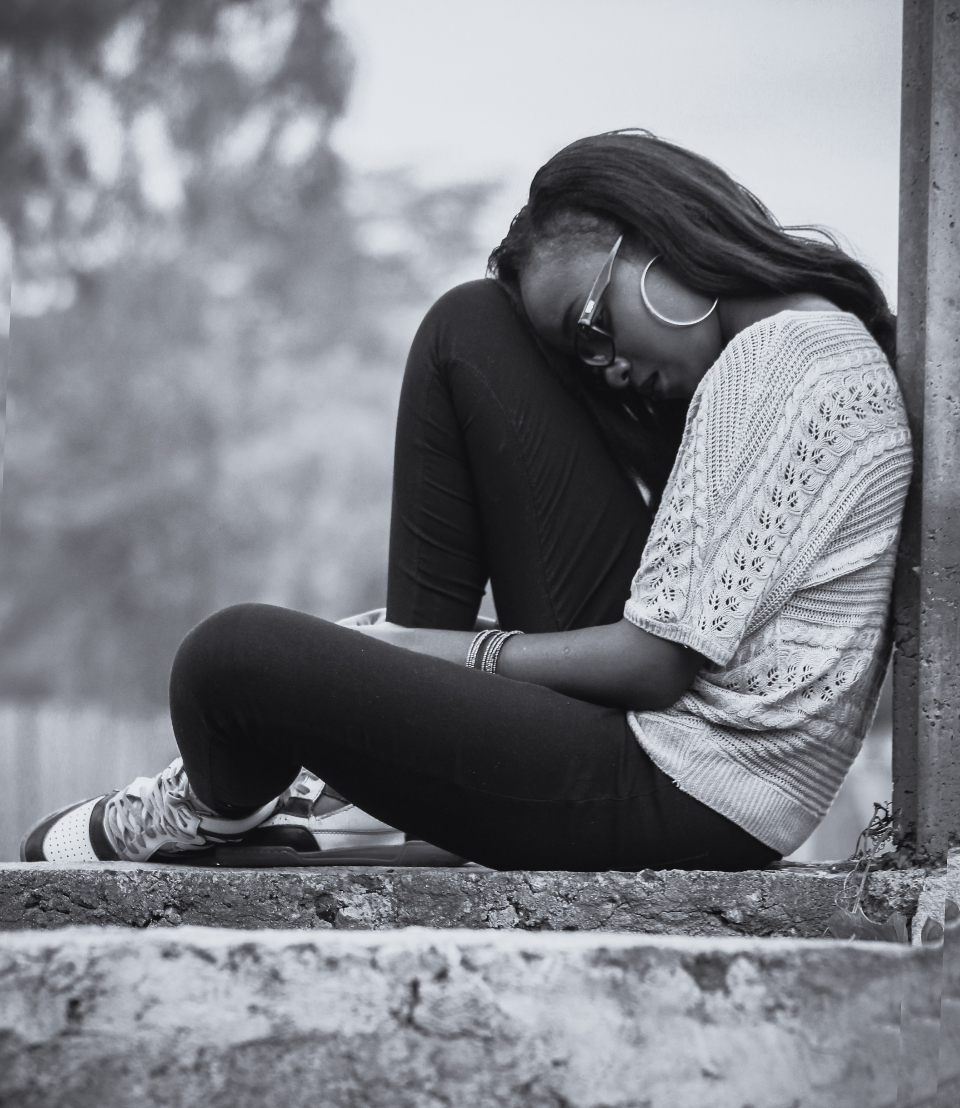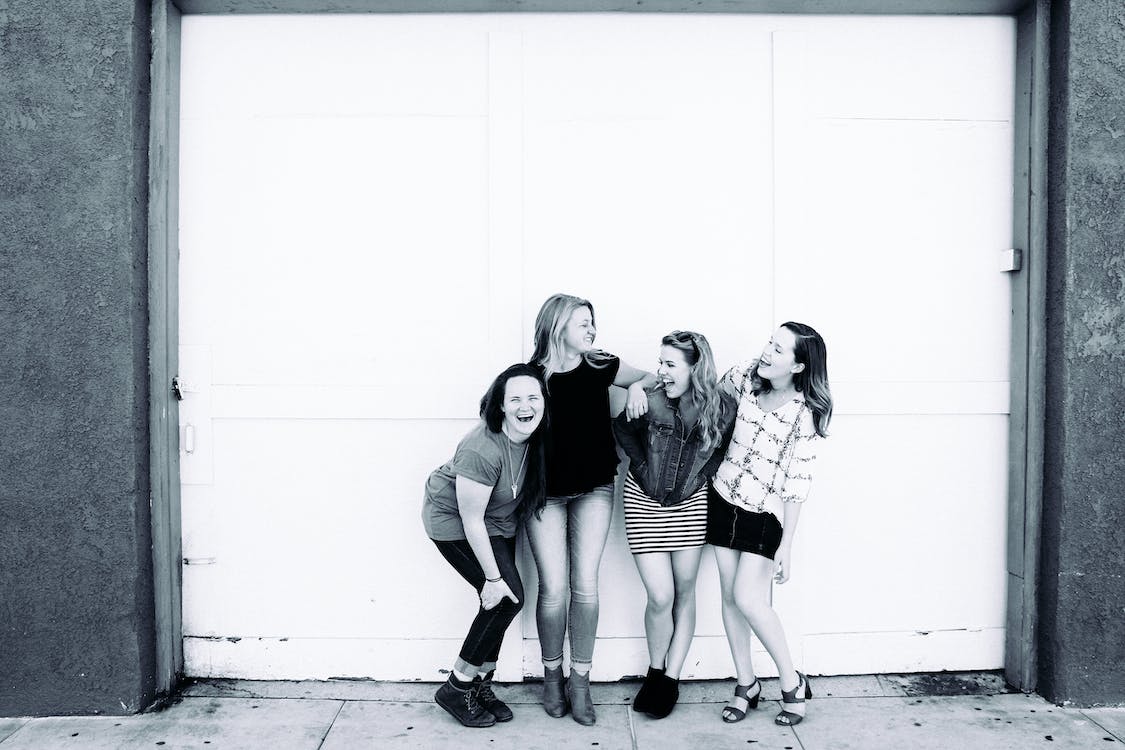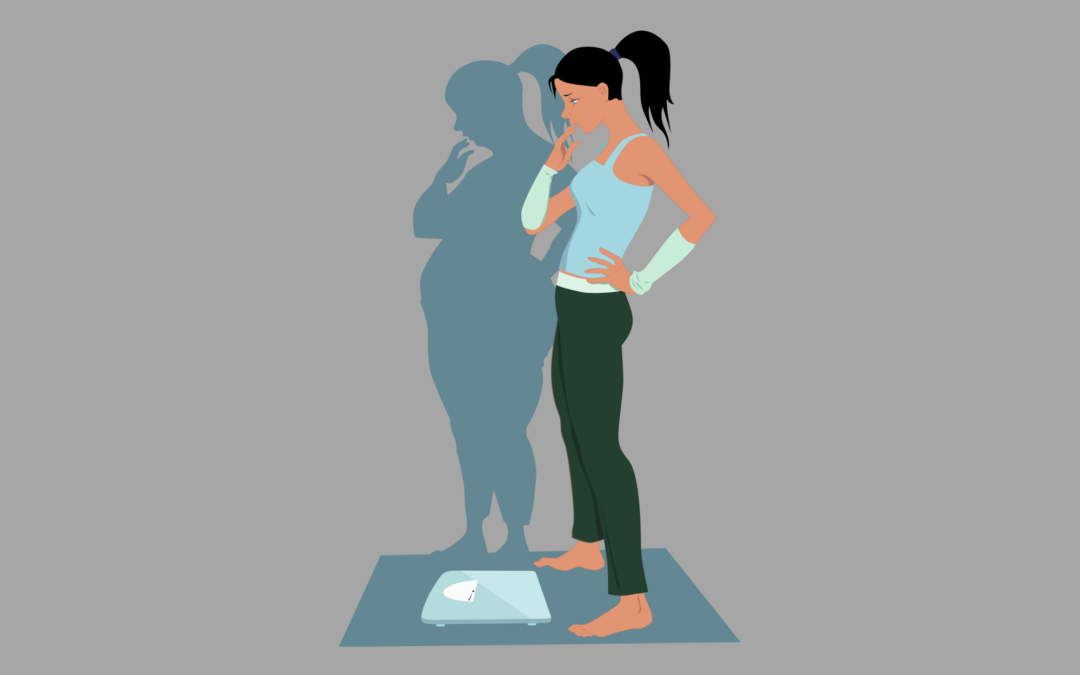Do you constantly worry about what you’re eating? Do you compare yourself to others? Do you label foods as ‘good’ and ‘bad’?
Eating disorders can develop for a number of complex reasons, but for young women, negative body image issues can be a huge trigger for disordered eating. Magazines, digital and print adverts, billboards, are constantly telling us that we need to look a certain way. It’s this kind of media which implies that if we don’t match the ‘ideal’ body then we are the outsiders in society and need to change to achieve the ‘picture perfect’ body. Supposedly harmless talk about diets with friends can negatively impact your relationship with food and make you want to change your body.

Comparison is the thief of joy
Comparing yourselves to others can potentially trigger the negative thoughts which lead to eating disorders. I can certainly say that this was a significant factor for me. Why was my body not like other girls? Why was I trying so hard when nothing seemed to work?
The way to overcome this is learning that the problem isn’t your body; it’s how you are viewing your body. We are all different shapes, sizes and ethnicities and that’s what makes us unique. How boring would it be if we all looked the same?
Let me tell you that you are perfect exactly the way you are and diets do not work. A healthy lifestyle is all about balance and variety – there are no ‘good’ and ‘bad’ foods! Restricting what you eat and over-exercising is not healthy, and as a good friend once told me, “girl, you can’t take on the world with an empty stomach.”
What we can do
Whilst we can’t single handily change the mass media’s portrayal of body image, talking with others really helps put your challenges into perspective and makes them more manageable. We can’t always filter what we hear from others, but we can educate and encourage them to think before they speak.
To recover from an eating disorder, it’s important to make your friends and family aware of how comments about food, exercise and body image make you feel. This doesn’t mean telling them never to mention the above subjects in conversation, but to highlight where you’re at, what you find unhelpful and what they can do for you. When I told one of my closest friends about my eating disorder I was humbled that the first thing she asked was “what can I do to help you?”

Here are a few ideas to take control and feel more body positive;
- Sprinkle your life with body-positive reminders of how great your body is. Write down three things you love about your body, that could be you like your nose or your hair, or you like that your legs help you swim or play soccer. When you read something helpful in a self-help book, on social media or note something someone has said, write it down on your phone or on in a notebook. You can put these on post-it notes and stick them on your mirror, or make a positivity board or just have a list of these encouragements handy when you need them.
- Follow body positive accounts on social media that promote body positivity, health and body acceptance. Some may have other resources, for example, @bodyposipanda has a book Body Positive Power which I found a real inspiration! Unfollow the accounts that make you criticise yourself and your body. You don’t need them.
- Surround yourself with positive people who build you up and be done with negative body talk. Real friends will support you and love you for who you are inside and out.
- Be secure in what you know about nutrition and your health. Your body keeps you breathing, seeing, hearing, thinking, standing, walking, talking, singing, dancing, climbing, running, swimming, sleeping and it needs energy to do all of these things. Your body is totally amazing, but just like a car, it won’t go anywhere without fuel so don’t make food the enemy.

Megan Jayne Crabb @bodyposipanda
Keep the conversation open
I know it can be a really personal and scary thing to talk about, but you’d be surprised at how many other people are struggling with the same thing. Putting these thoughts and feelings into words strips the eating disorder of the power it holds over you and makes it that bit more manageable. Give it a name. Say it out loud. I have an eating disorder. I struggle with this. It makes me feel like this. It’s a bit like shouting VOLDEMORT rather than whispering He Who Must Not Be Named. Honesty and truth will kill the taboo of mental health and eating disorders.
Singer Ed Sheeran has spoken publicly about his struggles with body image, comparing himself to others and feelings of insecurity. He is just one example of an A list role model speaking the truth and encouraging talk about mental health amongst children and youth.
“Life is more than fitting in your jeans it’s love and understanding – positivity” (What Do I Know ÷)
If you’re struggling with body image or an eating disorder, please talk to someone. There are a number of services available to help you through your recovery. Together we can be an encouragement to one another, support each other through illness and spread body positive vibes to all the girls we know.
For further support on eating disorders please visit;
https://thebutterflyfoundation.org.au/
Words by Alex Jarvis for The Big Sister Experience

